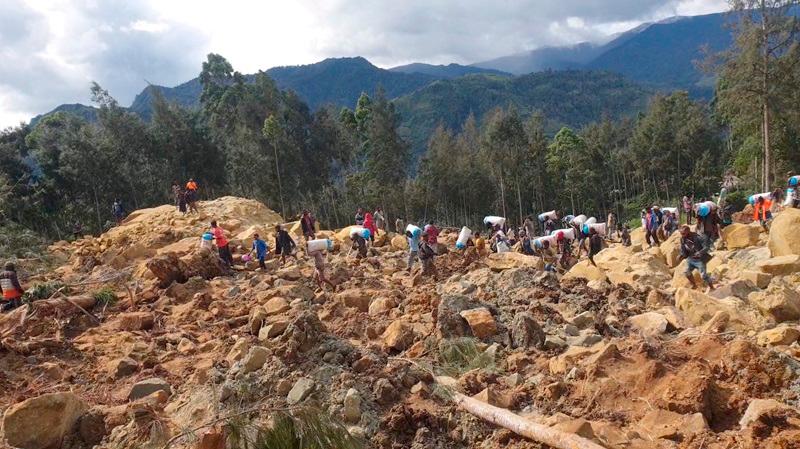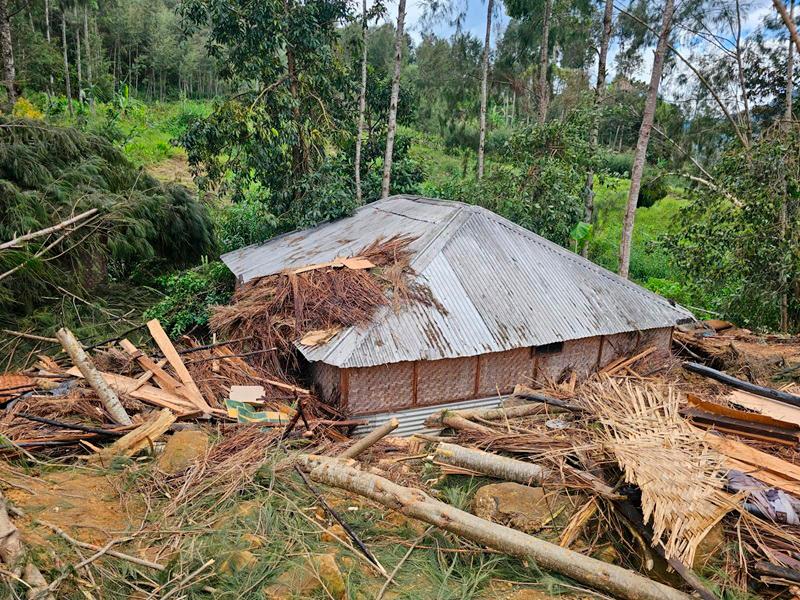SYDNEY: Hundreds are feared dead after a massive landslide levelled dozens of homes and buried families alive in a remote village in northern Papua New Guinea early on Friday, a resident said.
More than 50 homes, many with people still asleep inside, were buried when the landslide hit Kaokalam village around 3 a.m., villager Ninga Role told Reuters by phone. The death toll was nearly 300, among them his brother and cousin, he said.
The Australian Broadcasting Corp and other local media reported that more than 100 people had been killed.
One man who turned back to try and save his two children was buried along with his extended family, Role said.
Social media footage posted by Role showed people clambering over rocks, uprooted trees and mounds of dirt searching for survivors. Women could be heard weeping in the background.
“It’s very impossible, the area covered by the landslide is large and there are rocks and trees everywhere,“ Role said.
“It’s very difficult to get them out.”
The village is in Enga province, about 600 km (370 miles) north of the capital, Port Moresby.
Prime Minister James Marape said in a statement he was yet to be fully briefed, but that authorities were responding to the disaster.
“We are sending in disaster officials, PNG Defence Force, and the Department of Works and Highways to meet provincial and district officials in Enga and also start relief work, recovery of bodies, and reconstruction of infrastructure,“ Marape said.
“I will release further information as I am fully briefed on the scale of destruction and loss of lives.”
PNG police did not immediately respond to requests for comment.
The landslide hit a section of highway near the Porgera gold mine, operated by Barrick Gold through Barrick Niugini Ltd, its joint venture with China’s Zijin Mining.
“The extent of the damage is still being assessed, so it is too early to know the impact, if any, on the operations of the Porgera Gold Mine, which is 100 km away,“ a spokesperson for Barrick Gold said.
Porgera currently has sufficient fuel on-site to operate normally for 40 days and other critical supplies for longer, the spokesperson added.










